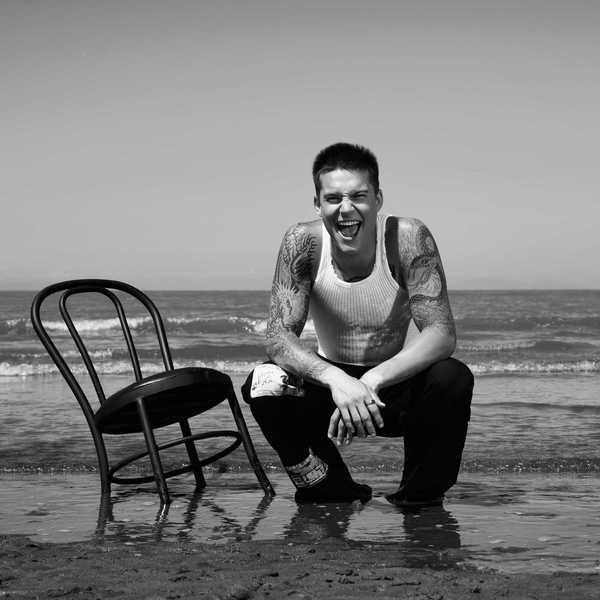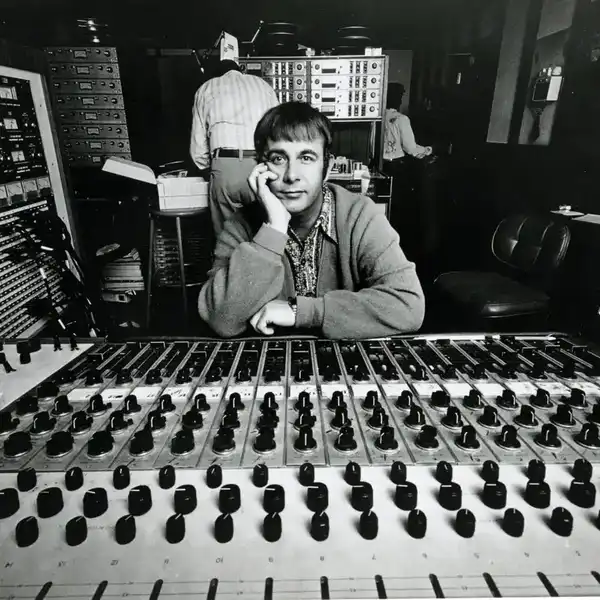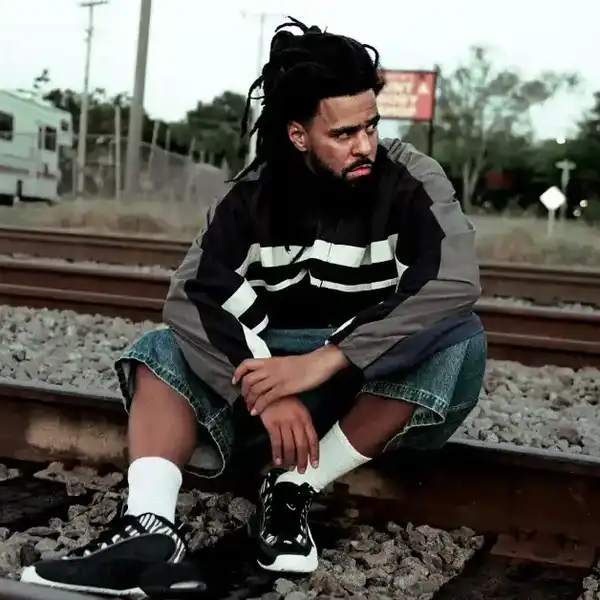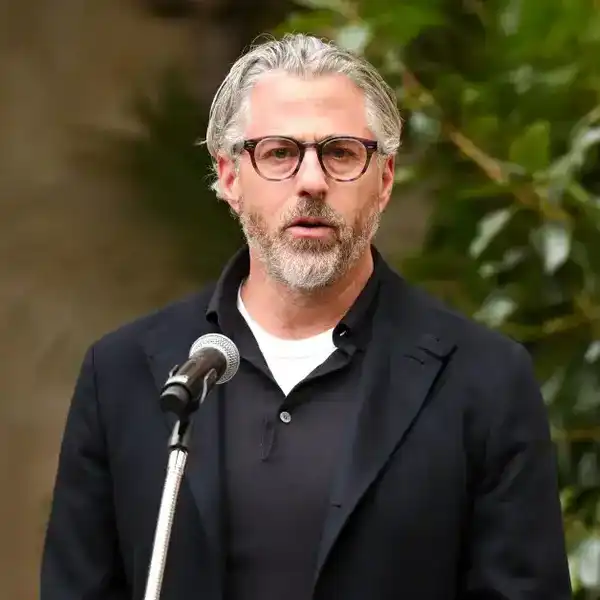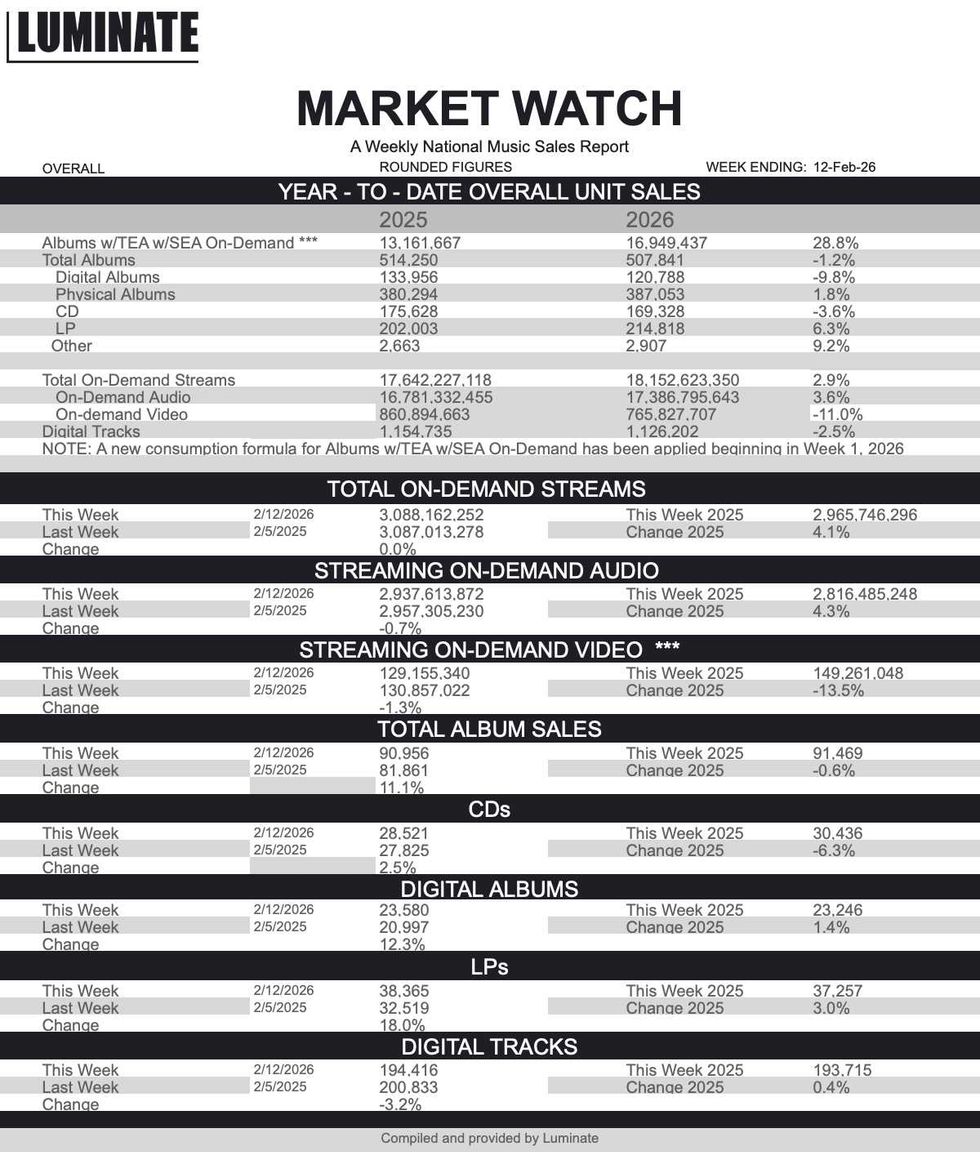Music News Digest, June 28, 2021
Big name Canadian acts line up for Calgary’s Stampede Summer Stage, the Saints and Sinners tour announces the new sked, and a thrift store David Bowie painting find gets big bucks. Also in the news are Project WILD, Alberta Music, Manitoba Music, Jen Doerksen, Sebastian Gaskin, Noon Tunes, Venus Fest, MusicOntario, and farewell Ellen McIlwaine (pictured), Doug Inglis, Jon Hassell, and Peter Zinovieff.

By Kerry Doole
The Stampede Summer Stage in Calgary has announced a strong lineup of performers for its 11 nights of concerts, July 8-18. The Trews kick things off, and other headliners include The Sam Roberts Band, Big Wreck, Stars, Monster Truck, The Sheepdogs, Dear Rouge, Classified, and Marianas Trench, with Blue Rodeo closing things out. Supporting acts throughout the festival will include The Static Shift, Snotty Nose Rez Kids, k-os, Jessia, Jess Knights and more. More info here.
– CanRock veterans Headstones, Moist, Sloan & The Tea Party have detailed new and rescheduled dates for the previously postponed Saints And Sinners Tour. Launching in Victoria, on Nov. 3, it concludes on Nov. 27 at Rama, ON. Dates and tix info here.
-- As predicted, a distinctive painting by David Bowie drew a bidding frenzy at Cowley Abbott’s Online Auction of International Art last week. Bought for $5 at a North Ontario thrift store, the work, entitled D Head XLVI, sold to a private collector in the US for $108K (Can). The initial auction estimate was $9-$12K. The sale marks a new global auction record for a Bowie painting.
– Submissions are now open for Project WILD, produced by Alberta Music and WILD 953 and returning for its final year of kick-starting the careers of 12 emerging Albertan artists. The finalists of the program will each receive a $5K development grant and participate in Project WILD’s one week music industry workshop/ boot camp. Deadline to apply here is July 14.
– Manitoba Music announced its board of directors for 2021-22 and celebrated the Kevin Walters Legacy Award recipients at its virtual AGM on June 23. Check out the new board here. This year, the Kevin Walters Legacy Award goes to Jen Doerksen, the marketing manager at Winnipeg-based label / artist management / publishing company Birthday Cake and co-founder of videography outfit BNB Studios. The Kevin Walters Memorial Songwriter Award goes to Indigenous multi-instrumentalist, R&B singer/songwriter, and producer Sebastian Gaskin.
– Live music has returned to downtown Saskatoon with Noon Tunes, a 16-concert series taking place every Sat. (noon – 1 pm) until the end of August. It is sponsored by the Downtown Saskatoon Business Improvement District, the Music Performance Trust Fund and the Saskatoon Musicians' Association. A full list of performers, times and locations here
– In partnership with MusicOntario, Venus Fest is producing a new summer mentorship program open to developing artists and emerging music industry professionals. Selected participants receive an honorarium and the opportunity to attend one-on-one ongoing sessions with mentors one hour per week for eight weeks through July and August. Keynote speakers include Jully Black (July 14) Ezra Furman (Aug. 4), and iskwē (Aug. 18), and mentors include Katie Stelmanis (Austra). Alanna Stuart (Bonjay), and Tao-Ming Lau (Blue Crane Agency). More info here
RIP
Doug Inglis, drummer for Toronto rock band Goddo, died on June 24, aged 70. The cause of death has not been announced.
Goddo was formed in Scarborough in 1975 and enjoyed success through the mid-'70s into the early '80s, with the title track of 1981 album Pretty Bad Boys becoming their biggest radio hit and helpinmg earn a Juno Award nomination for Most Promising Group.
Goddo released 10 albums between 1977 and 2008, beginning with a self-titled debut released in 1977 on Polydor. Other albums came out on Attic, Bullseye, Justin Entertainment, and Mausoleum Records.
The band's last show with the original line-up of singer/guitarist Greg Godovitz, bassist Gino Scarpelli, and Inglis was at Spot 1 Grill & Music Hall in Brampton, Ontario in Oct. 2018.
Inglis also appeared on albums by Paul Fenton (The Fenton Brothers) and The Anger Brothers (Bob Segarini and Greg Godovitz), and played in the Classic Albums Live series. He performed with Ronnie Hawkins from 2000 to 2005.
Greg Godovitz tells FYI that “Although we haven’t been in contact for a couple of years, I will always remember the highs of a very long career with him keeping us in time. Doug’s distinctive style of drumming was a key element in our sound and his easy going nature made him a great band mate. I hope he finds peace in the hereafter.”
Noted music photographer Patrick Harbron did work for Goddo and Attic Records, shooting and supplying the photography for two albums and, later, a DVD package. He paid tribute to Inglis on Facebook, posting that "I remember the chats Doug and I had about all the great concerts we both saw before we knew one another. What can I say, the guy had good taste in music. Doug loved rock and roll and showed what it meant to be a spectacular drummer. I’m sorry there won’t be any more chats." Sources: Greg Godovitz, Facebook, Wikipedia, Brave Words
Ellen McIlwaine, a US-born, Calgary-based blues guitarist and vocalist, passed away on June 23, at age 75, after a short bout with cancer.
McIlwaine earned the nickname the “Goddess of Slide” for her slide guitar skills, and was praised as an innovator on that instrument.
Born in Nashville, she grew up in Japan, where her adoptive parents were missionaries. Listening to Japanese radio growing up in the 1950s, she fell in love with R&B and early rock ‘n’ roll records. When she moved back to the States as a young adult, she bought a guitar, taught herself to play, and began her life-long music career.
Early on, she made a profound musical connection with a pre-fame Jimi Hendrix, playing with him in the mid-’60s Greenwich Village music scene. McIlwaine would eventually move to Canada in ‘80s, and after stints living in Montreal and Toronto, she made Calgary her home for the last three decades of her life.
She possessed a diverse set of musical abilities and interests, ranging across blues, jazz, rock, folk, funk, and various strains of world music. She was equally at home in a power trio setting, playing in a solo acoustic format, or collaborating with the likes of tabla master Cassius Khan, blues titan Taj Mahal and Cream bassist Jack Bruce.
In 1966, McIlwaine's stint in Greenwich Village saw her open every night at the Cafe Au Go Go, playing with Jimi Hendrix, and opening for Muddy Waters, Sonny Terry and Brownie McGhee, and Big Joe Williams.
She then returned to Atlanta to form the band Fear Itself, a psychedelic blues rock band. After recording one album with Fear Itself, McIlwaine went solo, recording two albums for Polydor, Honky Tonk Angel (1972) and We the People (1973), the latter featuring a hit single, I Don't Want to Play.
This was followed by The Real Ellen McIlwaine, recorded for the indepedendent Canadian label Kot'ai. Her fourth solo album, Everybody Needs It (1982), featured contributions from Jack Bruce, and won the NAIRD Indie Award.
In 2006 she started her own label Ellen McIlwaine Music and released Mystic Bridge featuring the Indian tabla drummer Cassius Khan.
In 2008, 2009, and 2010 she toured with Patty Larkin's La Guitara ensemble in the US, and in Canada with Sue Foley's Guitar Women, and appeared at various US and Canadian venues and festivals as a solo artist. In 2013 she traveled to Los Angeles to be part of the Jimi Hendrix documentary Hear My Train A Comin.
In 2019, McIlwaine was awarded Toronto Blues Society's "Blues with a Feeling" Lifetime Achievement Award
Her lengthy body of recorded work (11 solo albums) earned fans across the globe, with strong followings in Japan and Australia. Among her discography, are titles released or reissued by noted Alberta-based roots label Stony Plain Records, run by her close friend, Holger Petersen.
Petersen tells FYI that "I did a final phone interview with her on May 13. We spoke last week and she had a great attitude about her situation. She said she had a great life and really appreciated all the musicians she worked with and the friends she had. 'Don't take anything for granted' was her message."
"I worked with Ellen on the album Looking For Trouble and also reissued The Real Ellen McIlwaine and Everybody Needs It on CD for Stony Plain."
In that final interview with Petersen on CKUA in Edmonton, McIlwaine reflected on her more than four decade career, discussing her musical upbringing in Japan, her early exposure to the R&B scene, her first gig in New York, friendship and work with Jimi Hendrix and Taj Mahal, and much more. You can listen to the full interview below.
Her musical peers were quick to pay tribute as news of her passing spread. Suzie Vinnick termed McIlwaine "one of my biggest musical heroes. I was fortunate to get to play bass with her in The Toronto Blues Society Women's Blues Revue Band and a number of other shows. Playing with her was absolutely one of my favorite bass gigs. I'm so blessed having gotten to know her and perform with her."
On Facebook, Sue Foley posted that "I'm shocked and saddened to hear of the sudden passing of the great Ellen McIlwaine. Strong female players are commonplace nowadays but it wasn't always so. Ellen blazed a trail for me and made my path that much easier. I'm forever in her debt. RIP to one of my heroes. Thank you Ellen."
Manteca leader Matt Zimbel produced McIlwaine's album, Looking for Trouble. On Facebook yesterday, he posted that "To this day working with Ellen is one of the most thrilling things I have done in a career full of some pretty thrilling things. Over the years we had lost touch with each other but reconnected in March of last year and exchanged stories of lockdown and our most recent records. She was a powerhouse, she defied everyone who tried to put her in a lane. She took shit from no one but had a very tender, kind heart." Sources: Washington Post, Georgia Straight, Holger Petersen, CKUA, Wikipedia
International
– Jon Hassell, an acclaimed and influential American avant-garde composer and trumpeter, died on on June 26 at the age of 84. His family confirmed his passing in a statement on Facebook. Friend and collaborator Brian Eno started a GoFundMe in April 2020 to raise funds for Hassell’s “long-term health issues.”
Born in Memphis, Hassell studied at the University of Rochester’s Eastman School of Music before decamping to Europe to study under Karlheinz Stockhausen (among his classmates were Irmin Schmidt and Holger Czukay, who later formed seminal Krautrock group Can).
Upon his return to the US, Hassell took a fellowship at SUNY Buffalo’s Center for Creative and Performing Arts, where he first met American minimalist composer Terry Riley.
In 1968, Hassell would perform on the first recorded version of Riley’s influential work In C. He later also worked with La Monte Young, joining the Theatre of Eternal Music drone group, and studied extensively under the tutelage of their shared mentor, Indian music singer Pandit Pran Nath. It was from Nath that Hassell learned how to utilize techniques in the Kirana gharana vocal tradition on the trumpet.
Hassell’s first album Vernal Equinox, released in 1978, is widely considered to be the first work in what he would later dub the “Fourth World” musical aesthetic. Hassell called it “a unified primitive/futuristic sound combining features of world ethnic styles with advanced electronic techniques”; a combination of the “first” world and the “third” world that he also described as “metaclassical and metapop.”
The album drew the attention of Eno, who Hassell would collaborate with on Possible Musics/Fourth World Vol. 1 in 1980. Hassell’s 1981 album Dream Theory in Malaya: Fourth World Volume Two was recorded at Grant Avenue Studio in Hamilton, with the engineering and production help of Bob and Daniel Lanois, and input from Brian Eno. In 1983 and 1984, Daniel Lanois and Eno co-produced another Hassell album, Power Spot, also recorded at Grant Ave.
In 2007, Eno wrote an essay titled The Debt I Owe to Jon Hassell, in which he said: “If I had to name one overriding principle in Jon’s work, it would be that of respect: he looks at the world in all its momentary and evanescent moods with respect, and this shows in his music.”
In addition to later collaborations with artists like David Sylvian, Peter Gabriel, Talking Heads, Ry Cooder, and Tears for Fears, Hassell further delved into the “Fourth World” concept, one that has proven deeply influential to numerous genres of music.
In the 2000s, Hassell recorded with acts like k.d. Lang, Ani DiFranco, and Imogen Heap’s Frou Frou project. His last studio album Seeing Through Sound (Pentimento Volume Two) was released in 2020.
Speaking to the Guardian last year, Hassell said he was proud of his influence on a younger generation of musicians who did not perceive boundaries between global styles of music. “The fourth world is something that says: I’m aware of that, I’m aware of this and here’s what I’m coming up with.” Sources: Pitchfork, The Guardian
– Peter Zinovieff, a British engineer and composer whose early synthesisers helped to change the sound of pop, has died, aged 88. He had suffered a fall at home earlier this month.
With its marketing slogan 'think of a sound – now make it', his company Electronic Music Studios (EMS) was one of the first to bring synthesisers out of studios and to the public. With products such as the portable VCS3 and Synthi A, EMS customers – including David Bowie, Kraftwerk, Todd Rundgren, the Who, Tangerine Dream and Pink Floyd – were often taught to use the instruments by Zinovieff.
In 1967 he worked on Carnival of Light, a performance of a 14-minute avant garde composition created between Beatles sessions for Penny Lane that has never been released. He was also a respected composer of his own work, including early experiments with AI composition and sampling – he claimed to have invented the latter technique.
Zinovieff was born in London, the son of Russian aristocrats. His early work followed research at Bell Labs and an MIT thesis (1963) by David Alan Luce. In 1966–67, Zinovieff, Delia Derbyshire and Brian Hodgson ran Unit Delta Plus, an organisation to create and promote electronic music. It was based in the studio Zinovieff had built, in a shed at his house in Putney.
EMS grew out of MUSYS, which was a performance controller operating as an analogue-digital hybrid. It was a synthesiser system which Zinovieff developed with the help of David Cockerell and Peter Grogono, and used two DEC PDP-8 minicomputers and a piano keyboard. In early 1967, Unit Delta Plus performed in concerts at The Roundhouse, at which the Carnival of Light was also played; they split up later in 1967. Paul McCartney had visited the studio, but Zinovieff reportedly had little interest in popular music.
In 1969, Zinovieff formed EMS with Cockerell and Tristram Cary. At the end of the 1960s, EMS Ltd. was one of four companies offering commercial synthesizers, the others being ARP, Buchla, and Moog. In the 1970s, he became interested in the video synthesizer developed by Robert Monkhouse, and EMS produced it as the Spectron.
Jon Lord of Deep Purple described Zinovieff as "a mad professor type": "I was ushered into his workshop and he was in there talking to a computer, trying to get it to answer back". Trevor Pinch and Frank Trocco, in their history of the synthesizer revolution, see him rather as aristocratically averse to "trade".
Zinovieff wrote the libretto for Harrison Birtwistle's opera The Mask of Orpheus, and also the words for Nenia: The Death of Orpheus (1970). The section Tristan's Folly in Tristan (1975) by Hans Werner Henze included a tape by Zinovieff.
The studio went bankrupt in 1979, and much of its equipment was later destroyed in a flood. Zinovieff spent the 1980s and 90s mostly away from music, including teaching. He returned to composition in 2010, and worked with a younger generation of musicians including cellist Lucy Railton and violinist Aisha Orazbayeva. He also made several works with the poet Katrina Porteous. Sources: The Guardian, Wikipedia




